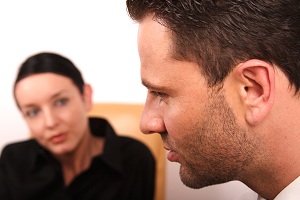
As therapists, we take journeys with our clients. We embark on long trips to uncover and discover the past and imagine possible futures. In the case of people who have been victims of childhood sexual abuse, this journey is especially difficult. Survivors entering into the therapeutic process feel profoundly damaged. They often come with little hope and a lot of shame. They desperately seek a connection with another[1] human being, yet are utterly afraid to trust.
Whatever clinical approach one takes as a therapist when treating survivors of sexual abuse, the quality of the therapeutic relationship is the most important aspect of the healing process. The relationship between the therapist and the client will become the foundation for all other relationships. The therapeutic relationship will offer the space both mentally and physically for the survivor to revisit old wounds, and also to learn new ways of being in the world. The consulting room becomes a place where survivors share memories, understand the past, and explore relational issues. It also lays the groundwork for a “corrective” experience by showing and experientially allowing the client to feel how one can have a nonabusive relationship with another.
Following Courtois (1988) and Herman (1981; 1997), I believe that when treating adult survivors of trauma, especially sexual abuse, the therapist needs to acknowledge the experience of the client. As Courtois (1988) states: “The reality of incest and child sexual abuse is at the core of this therapy. While this point is self-evident and redundant, it must be continuously reemphasized due to the societal tendency to deny, discount, or dismiss such intrafamilial abuse, as well as the denial inherent in some theories of personality and on the part of some practitioners. … The client is believed and is actively encouraged to remember what happened …” (page 167).
The therapist’s role is one of validation and support. Attitudes of “therapeutic neutrality” can repeat the pattern of abuse experienced by survivors by reinforcing isolation and self-doubt, and the silence on the matter might be perceived as siding with the aggressor. In treating survivors of sexual abuse, the clinician must first address the interpersonal damage survivors feel as a result of the trauma. The therapeutic relationship must withstand stories of horror, anger, shame, and fear. It must remain a constant in the face of disappointment, conflict, projected demands, and profound ambivalence to the therapeutic process and the therapist. Finally, the therapist must work with the client to understand that wounds can heal, even though scars remain.
As survivors come to understand their personal stories of abuse, an important part of the healing process is to encourage them to look at systemic oppression and how systems can promote abuse. Through active dialogue, therapists should engage with their clients in a process of critically analyzing the world by looking at mechanisms of oppression and dehumanization that foster sexual abuse (beliefs and practices regarding power, sexuality, gender inequality, ideas about children, and ownership) and how systems of oppression (schools, police, military) create the conditions for child sexual abuse. Because we live in a society that teaches and privileges power-over rather than power-with, an intrinsic part of therapy with sexual abuse survivors—and all our clients—should be an open interrogation of power, including an analysis of power in the therapeutic relationship.
When we engage in therapy that analyzes both personal and structural problems, we allow our clients the possibility to become not only agents of personal change but of social transformation as well. While understanding his/her power in the world, the client can heal by knowing that child sexual abuse is about having power over another person and using that power sexually. The client can then begin to have different types of relationships with others, allowing them to understand their own power while creating safer spaces for all of us.
References:
- Courtois, C. (1988). Healing the incest wound: Adult survivors in therapy. New York: W. W. Norton.
- Herman, J. (1981). Father-daughter incest. Cambridge, MA: Harvard University Press.
- Herman, J. (1997). Trauma and recovery: The aftermath of violence—from domestic abuse to political terror. New York: Basic Books.
[1] The Other as a concept of difference, other than the self. Otherness is part of understanding the self.

The preceding article was solely written by the author named above. Any views and opinions expressed are not necessarily shared by GoodTherapy.org. Questions or concerns about the preceding article can be directed to the author or posted as a comment below.

 Eliminating the Stigma of Childhood Sexual Abuse
Eliminating the Stigma of Childhood Sexual Abuse Axes and Lambs: If You See Something, Say Something
Axes and Lambs: If You See Something, Say Something


